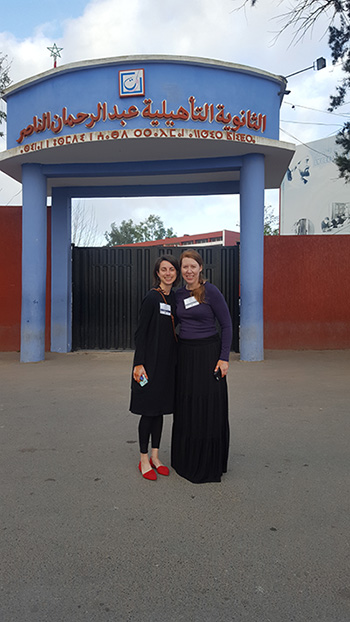Abstract
- 1984 News Articles Updatemr. Becker's Classroom Management
- 1984 News Articles Updatemr. Becker's Classroom
- 1984 News Articles Updatemr. Becker's Classroom Behavior
- 1984 News Articles Updatemr. Becker's Classroom Environment
- 1984 News Articles Updatemr. Becker's Classroom Assessment
Becker has been teaching 1984 to his high school students for over six years. While the kids in his rural community have always compared the book’s plot to news events, the comparisons this year are heightened, he said. Students point to the real-world concepts of “fake news,” constant surveillance and media bias reflected in the text.
This article reports selected results of a study in which teachers’ perceptions, opinions, and attitudes about instructional computing were examined. Implications about equitable access to computers in public schools are described. The data were gathered via a questionnaire mailed to 510 sixth-grade teachers in K-6 structured public schools. Significant findings concerning the nature of teachers’ thoughts and experiences with instructional computing, and the potential effect of those factors on students’ access to computers, are reported. As a needs assessment, this study provides useful information to instructional designers about how teachers perceive the computer and its use in their classrooms. Based upon the study, factors to consider when designing computer-based instruction for implementation in schools are suggested.
This is a preview of subscription content, access via your institution.
Becker (1963) has argued that the deviant status may become a master status for the person, that is, the negative images attac hed to the deviant label can override other attributes a person may have. A proposed paradigm for out-of-equilibrium quantum systems is that an analog of quantum phase transitions exists between parameter regimes of qualitatively distinct time-dependent behavior. Here, we present evidence of such a transition between dynamical phases in a cold-atom quantum simulator of the collective Heisenberg model. Our simulator encodes spin in the hyperfine states of ultracold.

1984 News Articles Updatemr. Becker's Classroom Management
References
Alvarado, A. J. (1984, April). Computer education for all students.The Computing Teacher, 11(8), 14–15.
Anderson, R. E., Welch, W. W., & Harris, L. J. (1984, April). Inequities in opportunities for computer literacy.The Computing Teacher, 11(8), 10–12.
Becker, H. J. (1982, January).Microcomputers in the classroom—dreams and realities. Baltimore, Maryland: Center for Social Organization of Schools, John Hopkins University.
Becker, H. J. (1984, Spring). School uses of microcomputers. Report #3 from a national survey.The Journal of Computers in Mathematics and Science Teaching, III(3), 26–32.
Becker, H. J. (1985, July).The second national U.S. school uses of microcomputers survey. Paper presented at the World Conference on Computers in Education, Norfolk, Virginia.
Becker, H. J. (1986a, June).Instructional uses of school computers. Reports from the 1985 national survey. Issue number 1. Center for Social Organization of Schools, The Johns Hopkins University.
Becker, H. J. (1986b, August).Instructional uses of school computers. Reports from the 1985 national survey. Issue Number 2. Center for Social Organization of Schools, The Johns Hopkins University.
Berman, P., & McLaughlin, M. (1976). Implementation of educational innovation.Educational Forum, 40(3), 345–370.
Cuban, L. (1986).Teachers and machines: The classroom use of technology since 1920. New York: Teacher’s College Press.
Dalton, D., & Hannafin, M. (1986). The effects of video-only, CAI only, and interactive video instructional systems on learner performance and attitude: An exploratory study.Proceedings of the Annual Convention for the Association of Educational Communications and Technology in Las Vegas, Nevada.
Edwards, C. (1984, April). Super mario bros x gratis pc download free. Achieving equity.The Computing Teacher, 11(8), 62–64.
Enochs, L. G. (1984, Spring). The effect of computer instruction on general attitudes toward computers of fifth graders.The Journal of Computers in Mathematics and Science Teaching, III(3), 24–25.
Fullan, M. (1982).The meaning of educational change. New York: Teachers College Press.
Keller, J. M. (1987). Development and use of the ARCS model of motivational design.Journal of Instructional Development, 10(3).
Lacina, L. J. (1984, Winter). Computer equity in public education.Education, 104(2), 128–130.
Marrapodi, M. R. (1984, April). Females and computers? Absolutely!The Computing Teacher, 11(8), 57–58.
Sarason, S. B. (1982).The culture of the school and the problem of change. Boston: Allyn and Bacon.
Schiffman, S. S. (1987). Influencing public education: A “window of opportunity” through school library media centers.Journal of Instructional Development, 10(4).
Schubert, J. G., & Bakke, T. W. (1984, April). Practical solutions to overcoming inequity in computer use.The Computing Teacher, 11(8), 28–30.
Sheingold, K., Kane, J., Endreweit, M., & Billings, K. (1981, February).Issues related to the implementation of computer technology in schools: A cross-sectional study. New York: Bank Street College of Education.
Shrock, S. A., & Byrd, D. M. (1987). An instructional development look at staff development in the public schools.Journal of Instructional Development, 10(4).
Weinshank, A. B., Trumbull, E. S., & Daly, P. L. (1983). The role of the teacher in school change. In L. S. Shulman & G. Sykes (Eds.),Handbook of teaching and policy. New York: Longman.
Author information
1984 News Articles Updatemr. Becker's Classroom
Affiliations
Corresponding author

Correspondence to Nancy Nelson Knupfer.
Rights and permissions

About this article
Cite this article
Knupfer, N.N. Teachers’ beliefs about instructional computing: Implications for instructional designers. Journal of Instructional Development11, 29–38 (1988). https://doi.org/10.1007/BF02905302
1984 News Articles Updatemr. Becker's Classroom Behavior
Issue Date:
DOI: https://doi.org/10.1007/BF02905302

1984 News Articles Updatemr. Becker's Classroom Environment
Keywords
1984 News Articles Updatemr. Becker's Classroom Assessment
- Preservice Teacher
- Instructional Designer
- Teacher Training
- Inservice Training
- Instructional Development

Comments are closed.